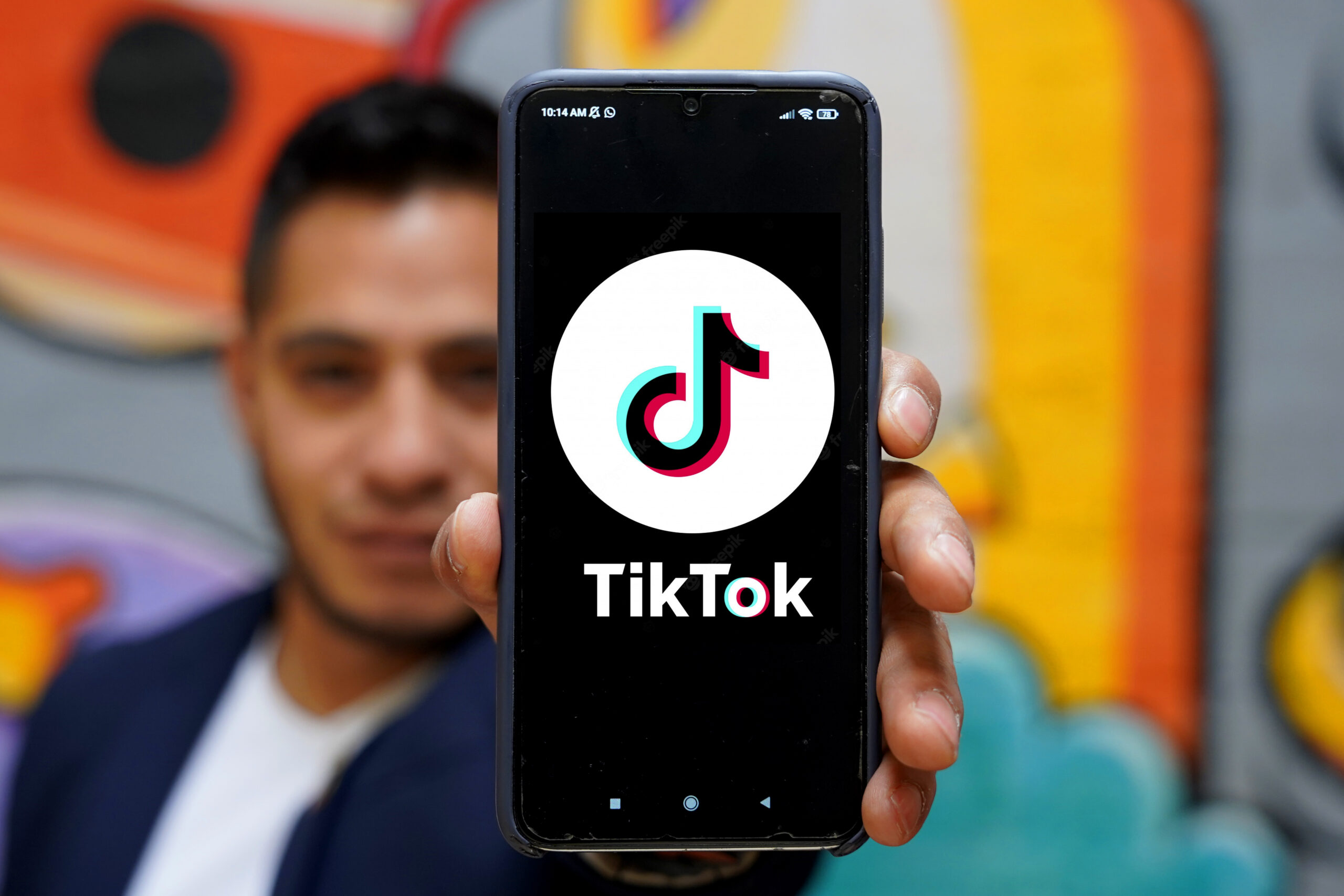As you follow TikTok’s unfolding drama in the U.S., you’re witnessing a landmark case that could reshape social media and digital rights. The Supreme Court will weigh a critical question: does national security outweigh free speech for foreign-owned apps? This case pits the popular video-sharing platform against a law mandating its sale or face a nationwide ban. At stake are the First Amendment rights of millions of users and the government’s authority to regulate foreign tech companies. The court’s decision will not only determine TikTok’s fate but also set a precedent for how America balances security concerns with digital freedoms in an increasingly interconnected world.
The Clash of Free Speech and National Security in the TikTok Case

The TikTok controversy epitomizes the delicate balance between safeguarding national security and preserving free speech in the digital age. As the Supreme Court deliberates, you’ll find compelling arguments on both sides of this contentious issue.
First Amendment Concerns Clashes with National Security
TikTok’s defense rests on the bedrock of the First Amendment. The platform argues that banning the app would effectively silence millions of American voices, stifling creativity and expression. With over 170 million U.S. users, TikTok has become a vital medium for sharing ideas, art, and political discourse.
National Security Imperatives
On the other hand, the Justice Department contends that TikTok’s Chinese ownership poses a grave threat to national security. The concern stems from the potential for the Chinese government to access sensitive user data, manipulate content, or even conduct espionage through the app. This argument underscores the unique challenges posed by technology in an era of global competition and cyber warfare.
Implications for the Digital Landscape and National Security
The Supreme Court’s decision will likely set a precedent for balancing free speech with national security in the digital realm. It could impact not only TikTok but also other foreign-owned applications and platforms operating in the U.S. The ruling may reshape the boundaries of government regulation over social media and influence future policies on data privacy and cross-border technology transfers.
ByteDance’s Fight to Save TikTok: The Constitutional Challenge
First Amendment Concerns
ByteDance, TikTok’s parent company, opposes the forced divestiture, claiming it violates the First Amendment rights of American users. The company argues that banning the app would silence a key platform for free expression and public discourse in the U.S.
National Security vs. Free Speech
At the heart of this battle is the tension between national security and free speech. The Justice Department argues that Chinese government access to user data poses a critical national security threat, justifying stringent legal measures. However, ByteDance argues that these concerns are overblown and that the ban is disproportionate to any actual risk.
Implications for Digital Rights
The case could set a major precedent for balancing national security concerns with digital rights in a connected world. A ruling for the ban might pave the way for similar actions against other foreign-owned platforms, reshaping internet freedom in the U.S. Conversely, a decision for TikTok could bolster digital speech protections and limit government restrictions based on national security claims.
The Justice Department’s National Security Argument: Evaluating the Risks
The Justice Department’s stance on TikTok centers on a critical national security concern: the potential for the Chinese government to access sensitive U.S. user data. This argument stems from China’s National Intelligence Law, which requires Chinese companies to cooperate with state intelligence work.
Data Collection and Storage Concerning National Security
TikTok collects vast amounts of user data, including location information, browsing history, and device identifiers. The Justice Department contends that this data if accessed by Chinese authorities, could be used for surveillance, espionage, or influence operations targeting U.S. citizens.
Algorithm Manipulation
Another key concern is the potential for TikTok’s powerful recommendation algorithm to be manipulated. The Justice Department claims ByteDance could be forced to alter the app’s content delivery, spreading misinformation or suppressing viewpoints for the Chinese government.
Cybersecurity Vulnerabilities
The Justice Department also highlights potential cybersecurity risks. They argue that TikTok’s code could be compromised to create backdoors for data exfiltration or to launch cyberattacks on U.S. infrastructure.
TikTok denies these allegations and has taken steps to address security concerns. However, the Justice Department argues that the risks outweigh the benefits, justifying ByteDance’s divestiture or a full ban.
The Political Twist: Trump’s Intervention and the Prospect of a Negotiated Resolution
Trump’s Unexpected Stance
In a surprising turn of events, President-elect Donald Trump has requested the Supreme Court to delay TikTok’s ban. This move marks a significant shift from his previous position, where he advocated for the app’s prohibition due to national security concerns. Trump’s current stance suggests a desire to explore diplomatic channels and negotiate a political resolution upon taking office.
Implications of a Potential Delay
If granted, Trump’s requested delay could dramatically alter the trajectory of the TikTok case. It would provide a window of opportunity for diplomatic negotiations between the U.S. and China, potentially easing tensions surrounding the app’s ownership. However, this approach also raises questions about the consistency of U.S. policy regarding national security threats and foreign-owned technology platforms.
Balancing Act: National Security vs. Political Expediency
Trump’s intervention highlights the complex interplay between national security concerns and political considerations. While the Justice Department maintains that TikTok’s Chinese ownership poses a significant threat, the prospect of a negotiated resolution suggests that there may be room for compromise. This situation underscores the challenges of navigating international tech disputes in an increasingly interconnected digital landscape.
The Broader Implications: The Supreme Court’s Pivotal Decision and the Future of the Digital Landscape
As the Supreme Court weighs in on TikTok’s fate, you’ll find that this decision extends far beyond a single app. The ruling will set a precedent that could reshape the entire digital landscape, impacting how you interact with technology and social media platforms in the future.
Balancing National Security and Free Speech
The Court’s decision will set a key standard for balancing national security concerns with First Amendment rights in the digital age. It could shape future policies on foreign-owned platforms and affect access to global content and communication.
Ripple Effects on Tech Innovation and Investment
You might see significant changes in the tech industry’s landscape. A decision favoring national security could deter foreign investment in U.S. tech companies, potentially limiting the diversity of apps and services available to you. Conversely, a ruling prioritizing free speech could encourage more international collaborations, fostering innovation and competition in the digital marketplace.
Shaping Internet Governance
The outcome will likely influence how other countries approach internet governance and data privacy. You may witness a shift in global digital policies, affecting everything from how your data is handled to the type of content you can access online. This decision could potentially trigger a domino effect, prompting other nations to reassess their own digital sovereignty and security measures.
Final Thoughts
As you await the Supreme Court’s decision, consider the case’s wide-reaching impact. The ruling will determine TikTok’s future in the U.S. and shape the balance between national security and free speech in the digital age.It may prompt questions about the justification for government intervention in technology and its impact on online experiences. Regardless of the outcome, this case will likely set a precedent for how foreign-owned applications are regulated in the U.S. As the digital landscape continues to evolve, you must remain vigilant and informed about the policies that govern your online interactions and the platforms you use daily.
More Stories
Bluesky Reinvents the Blue Check: A Decentralized Take on Digital Trust
In an era where digital trust is critical yet fragile, Bluesky offers a bold new approach to online verification. Bluesky...
Confluent Unifies Real-Time and Historical Data to Power Next-Gen AI and Analytics
Confluent has made major progress by upgrading its Confluent Cloud platform. These enhancements aim to unify data streams for advanced AI applications.
ChatGPT Deep Research Now Integrates with Dropbox and Box for Enhanced Data Access
ChatGPT Deep Research integration with Dropbox and Box enhances data access for users enabling them to link cloud storage accounts directly to Deep Research.
Operator 2.0: OpenAI’s o3 Model Elevates Autonomous AI Agents
OpenAI’s latest advancement marks a new milestone with the introduction of Operator 2.0, powered by the cutting-edge o3 model
Mistral AI’s Le Chat Enterprise and OCR 25.05: Redefining Enterprise AI on Google Cloud
In the rapidly evolving landscape of enterprise technology, Mistral AI's collaboration with Google Cloud marks a transformative leap forward. By...
AI Arms Race Escalates as OpenAI Locks Jony Ive for Next-Gen Hardware
OpenAI has formed a groundbreaking collaboration with Jony Ive, the visionary designer behind Apple’s most iconic products.

